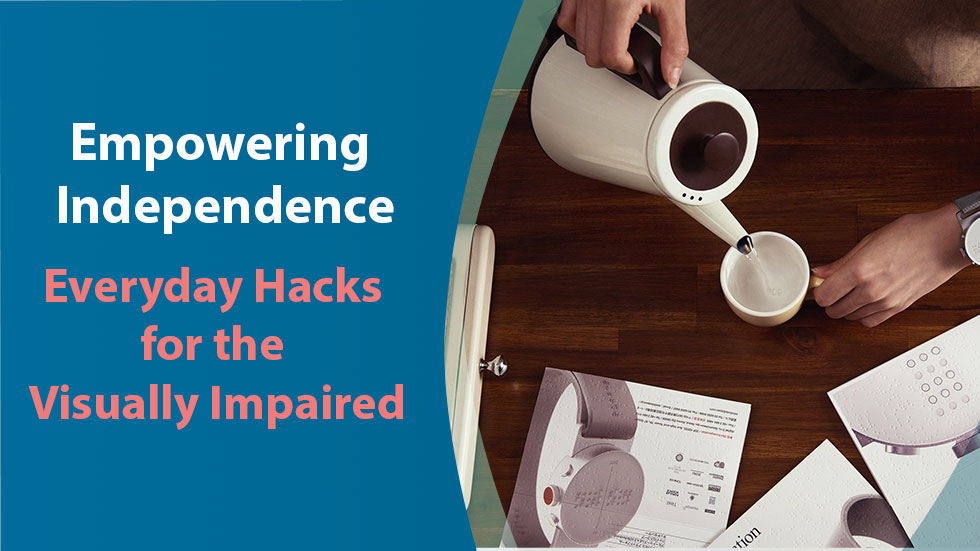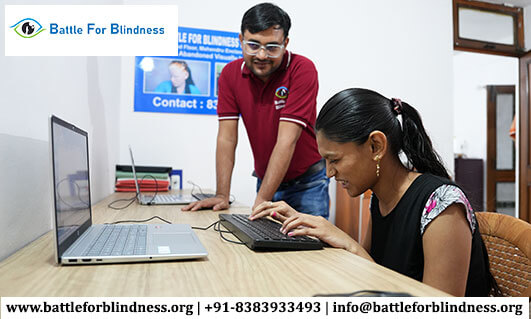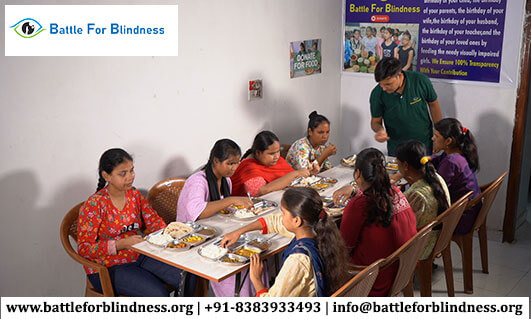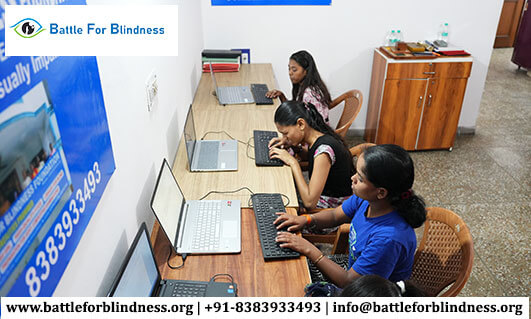
Living independently as a visually impaired individual comes with its unique set of challenges. However, with the right strategies and a few practical life hacks, navigating daily life can become smoother and more empowering. Below are some effective tips to help visually impaired individuals master independent living and lead a more autonomous life.
1. Organizing Your Space for Safety and Efficiency
One of the most critical aspects of independent living is creating a well-organized and clutter-free environment. Here are some tips to enhance organization:
- Label Items: Use Braille or tactile labels on everyday objects like containers, medication bottles, or appliances. If Braille isn’t an option, consider using rubber bands or different textures to differentiate similar objects.
- Strategic Placement: Keep frequently used items in the same place to reduce time spent searching for them. Consistency helps build memory of where things are located.
- Minimalism: Keep surfaces free from unnecessary objects to minimize accidents. This also makes cleaning and maintaining your space easier.
2. Technology for Independence
Modern technology is a game-changer for visually impaired individuals. Here’s how you can use tech to your advantage:
- Voice Assistants: Smart speakers like Amazon Alexa and Google Home can help with everything from setting reminders and alarms to controlling smart home devices.
- Accessibility Features: Smartphones and computers come with built-in accessibility features like screen readers (VoiceOver on Apple and TalkBack on Android). Learn how to navigate using these features for tasks like emailing, scheduling, or surfing the web.
- Apps for Daily Life: Apps like Be My Eyes, Aira, and Seeing AI provide real-time assistance by connecting you with sighted volunteers or using AI to describe objects and read text.
3. Adaptive Cooking Tips
Cooking can seem daunting, but with some simple adaptations, it can be a fun and rewarding activity:
- Use Audible Kitchen Gadgets: Devices like talking food scales, tactile timers, and smart thermometers make it easier to measure, time, and cook food accurately.
- Cutting and Chopping: Use a knife guard or finger protector to avoid accidents. Opt for tools like vegetable choppers or slicers that keep your hands away from sharp blades.
- Organize Ingredients: Store spices and frequently used ingredients in labeled containers. Use a system, such as arranging them alphabetically or by category.
4. Personal Care and Grooming Hacks
Staying on top of personal hygiene is key to feeling confident and comfortable. These life hacks can simplify the process:
- Braille or Raised Dot Markings: Use raised dots or textured tape to differentiate shampoo from conditioner or toothpaste from lotion.
- Electric Razors: Electric razors can be safer for shaving since they reduce the risk of nicks and cuts.
- Organized Toiletries: Arrange personal care items in a consistent order in your bathroom. Consider using trays or compartments to separate products like deodorant, toothpaste, and brushes.
5. Clothing and Wardrobe Management
Dressing confidently and fashionably is possible with a few strategies in place:
- Tactile Clothing Labels: Attach tactile labels to clothes to differentiate between items of similar color or design. Some visually impaired individuals use safety pins or buttons for this purpose.
- Matching Outfits: Organize your wardrobe by matching outfits in advance. You can group matching shirts and pants together or use rubber bands to connect them.
- Laundry Sorting: Keep laundry baskets labeled or separated by fabric type or color. This helps avoid color mishaps and makes the process more efficient.
6. Transportation and Mobility
Mastering mobility is key to independent living. Here are some tips to enhance your mobility experience:
- Smart Canes: Invest in a smart cane that offers GPS navigation, obstacle detection, and tactile feedback to improve your mobility and safety while traveling.
- Public Transportation: Many public transit systems offer services designed to assist visually impaired riders. Familiarize yourself with schedules, ask for help when necessary, and use travel apps that provide audio directions.
- Orientation and Mobility Training: If possible, seek out orientation and mobility (O&M) training to learn advanced navigation techniques and how to use public transport confidently.
7. Time Management and Organization
Keeping track of time and tasks is essential for daily life. These hacks can help:
- Talking Clocks and Watches: Invest in a talking watch or clock to keep track of time without needing to see the display.
- Accessible Planners: Use an accessible planner app with voice input or braille notes to manage appointments and to-do lists. Voice reminders from your smartphone can also keep you on track throughout the day.
- Color-Coded Systems: For paperwork or tactile-based filing, use color-coded folders, raised stickers, or braille markers to stay organized.
8. Financial Independence
Managing finances independently requires tools that cater to the visually impaired:
- Talking ATM and Card Reader: Many ATMs are equipped with audio options, and certain card readers have braille or tactile markers. Use these when accessing your bank accounts.
- Money-Identification Apps: Apps like Cash Reader and EyeNote help you identify banknotes through audio cues. You can also fold currency in specific ways to differentiate between denominations.
9. Building a Support Network
Even though mastering independent living is the goal, it’s important to have a reliable support network:
- Support Groups: Join a local or online support group for visually impaired individuals to share tips, experiences, and gain encouragement.
- Assistive Services: Don’t hesitate to reach out to professional services such as mobility trainers, independent living instructors, and personal care assistants for help when needed.
Conclusion
Living independently as a visually impaired individual is achievable with the right strategies and tools. From organizing your home to leveraging technology, these life hacks can simplify daily tasks and increase your confidence in managing your own life. With perseverance and a proactive mindset, independence becomes not just a goal but a rewarding way of life.





